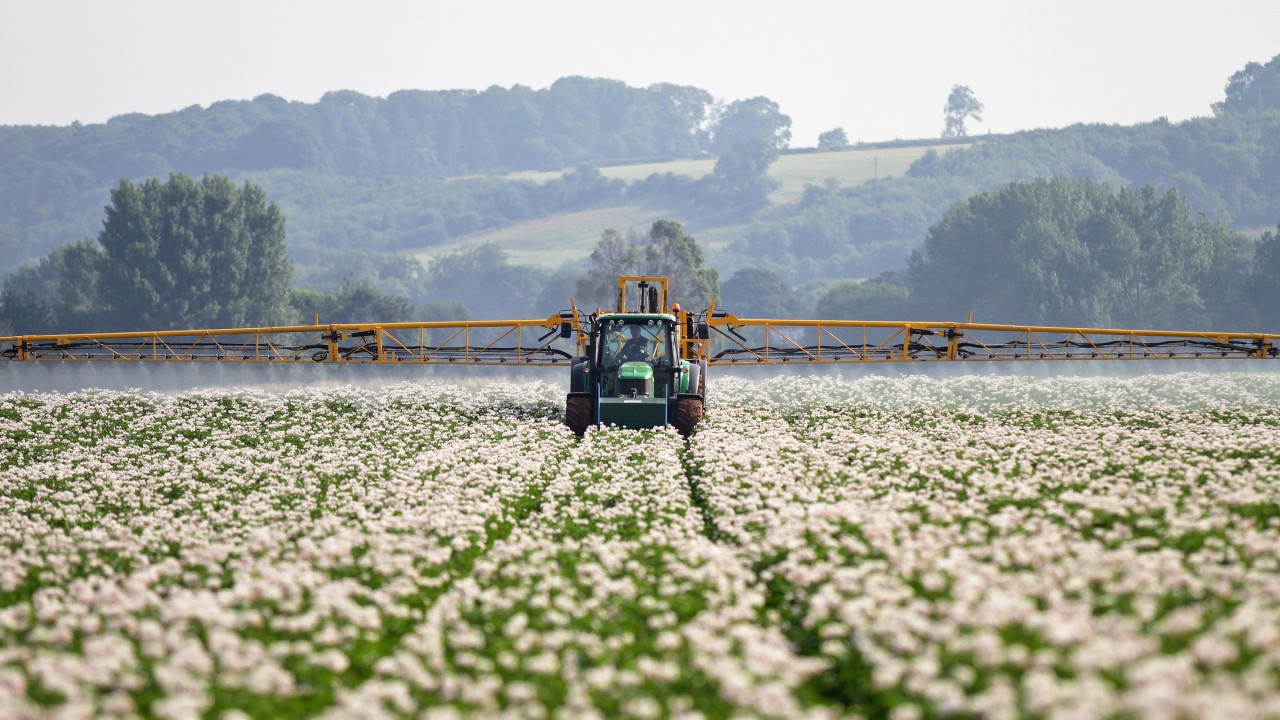The Chemicals Regulation Division (CRD) in the UK has approved Funguran Progress for emergency use on organic potatoes to control late blight.
The Agriculture and Horticulture Development Board (AHDB) applied for emergency use last year and the approval was granted on July 10.
Growers in England can use the fungicide, where it is deemed necessary, until September 30, 2020, and stocks must be removed by October 31, 2020.
Certis Europe BV markets the product in the UK. Funguran Progress contains 537g/kg of copper hydroxide.
Nick Badger who is the potato product manager at Certis UK stated: “This is good news for organic potato growers this season.
“Looking to the future, Certis Europe has recently submitted a new product submission [Article 33] to CRD for Funguran Progress. We await the outcome of its evaluation.”
Growers who use the product have to ensure that crops are not exported to EU member states to avoid exceeding maximum residue level (MRL) restrictions and must also ensure that crops treated with the product are not fed to livestock.
According to a press release from the AHDB, organic potato growers who use Funguran Progress must follow guidelines.
Growers who use Funguran Progress must:
- Record their use of Funguran Progress and any other copper-containing product used on the crop;
- Keep documents enabling the CRD to trace treated crops through the supply chain;
- Provide evidence that no treated product was fed to livestock.
The maximum dose of Funguran Progress is 2kg/ha and a maximum of four applications are permitted. There must be a 10-day interval between treatments and the final application must be at least 14 days before harvest.
The AHDB also noted that the maximum dose of copper substances from all sources, including non-plant protection uses, must not exceed 4kg of copper/ha per year.
The statement from the AHDB also stated: “Due to the new process for considering Article 53 Emergency Authorisations in the UK, the devolved administrations must consider any application separately to the UK minister.
“At present, it is unlikely that Scotland, Wales and Northern Ireland will vote in favour of permitting the emergency use of Funguran Progress on organic potatoes.”
Blight resistant varieties
Anne Stone who is the knowledge transfer manager at the AHDB stated that growers need to use blight resistant varieties.
“While fungicide sprays can be an effective part of blight control, many aspects of the potato crop affect its susceptibility to late blight and overuse can build up resistance. In the long term, the use of resistant potato varieties will be crucial to a sustainable blight management programme.
Modern technology allows breeders to select varieties resistant to blight using genetic markers. Companies purchasing fresh-market potatoes have named and listed new robust varieties, with many more coming through the development process.
“While take-up of new resistant varieties is a slow process, organic growers can help by working with breeders, seed suppliers and customers to increase their use.”

